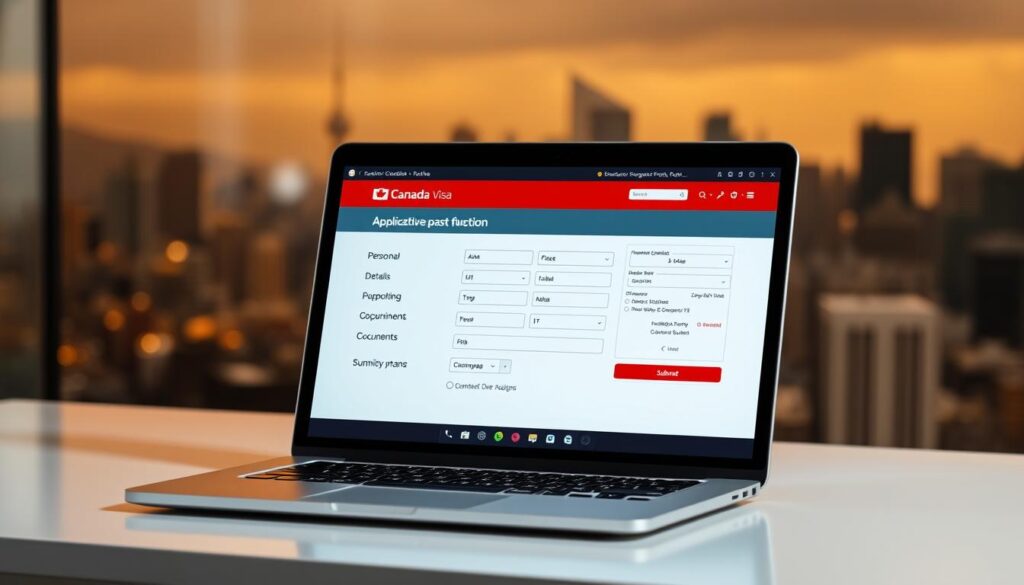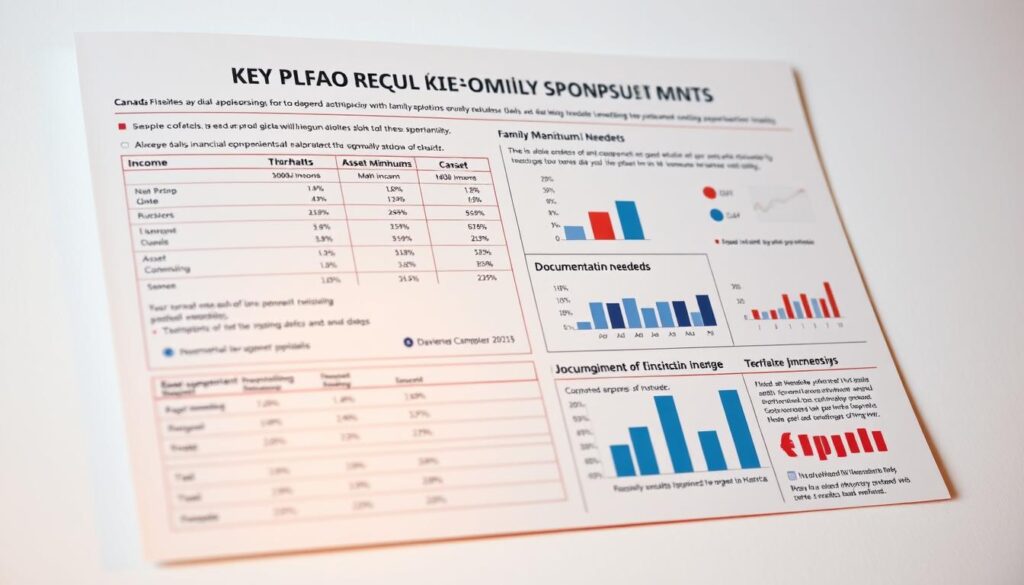Did you know over 100,000 families reunite in Canada yearly through special immigration pathways? For those without close relatives nearby, the Lonely Canadian Program offers a lifeline. It helps citizens sponsor extended family members, like siblings or adult children, fostering emotional bonds across borders.
The Canada Visa Portal simplifies the process, letting you submit applications digitally. This program is exclusive to those with no immediate family in the country, making it a unique opportunity.
In this guide, you’ll learn about eligibility, financial requirements, and how to avoid common pitfalls. Ready to bring your loved ones closer? Let’s begin.
Understanding the Lonely Canadian Program
Reuniting with loved ones is possible even if you have no immediate family in the country. The Lonely Canadian Program, managed by IRCC, offers a lifeline to citizens or permanent residents without close relatives nearby. It focuses on reuniting sponsors with extended family members, fostering connections across borders.

What Is This Program?
This initiative allows you to sponsor adult children (22+), siblings, or even nieces and nephews. Unlike other pathways, it’s designed for those with no spouse, child, parent, or grandparent in Canada or abroad. Blood or adoptive ties are mandatory—no cousins or friends qualify.
“Sponsors must demonstrate they have no core family members worldwide to be eligible.” — IRCC Guidelines
Who Qualifies as a Sponsor?
To apply, you must:
- Be a citizen or permanent resident.
- Have no living parents, even if they’re unsponsorable.
- Prove financial stability to support relatives.
| Eligible Relatives | Ineligible Cases |
|---|---|
| Adult children (22+) | Sponsors with living parents abroad |
| Siblings | Common-law partners |
| Nieces/nephews | Distant cousins |
For example, if your parents reside overseas—even if you’re estranged—you cannot sponsor a sibling. The rules prioritize those with truly no other family ties.
Eligibility Criteria for Sponsors and Relatives
Meeting financial and legal standards is key to sponsoring relatives through this initiative. The rules ensure sponsors can support their loved ones long-term while maintaining program integrity.

Requirements for Canadian Sponsors
To qualify, you must be a citizen or permanent resident aged 18+. Criminal records or unresolved immigration violations may disqualify you.
Financial proof is critical. Sponsors must meet the Minimum Necessary Income (MNI) and commit to 10 years of support. For example, a single sponsor needs CAD $32,270 annually (2023 benchmark).
Relationship and Blood-Tie Rules
Only related blood or adoptive ties qualify. Eligible relatives include adult children (22+), siblings, or nieces/nephews. In-laws cannot be principal applicants.
“Biological or legal adoption bonds are mandatory—no exceptions for emotional or distant connections.” — IRCC Guidelines
Exclusions That Affect Eligibility
Sponsors with core family members (like parents or a spouse) worldwide are ineligible—even if those relatives live abroad or are unsponsorable. This prevents misuse of the program.
- Example: A sponsor with parents overseas cannot apply, even if estranged.
- Common-law partners do not qualify under this pathway.
Navigating the Application Process
Applying for family sponsorship doesn’t have to be overwhelming—here’s how to navigate the process smoothly. The Canada Visa Portal simplifies submissions, but missing steps or documents can cause delays. Below, we break down each phase to ensure success.

Step-by-Step Guide to Submitting Your Application
Start by creating an account on the Canada Visa Portal. Upload scanned copies of all required forms, including the sponsorship agreement. Pay fees online to lock in your submission date.
“Double-check entries before finalizing—errors can add months to processing times.” — MM Immigration Law
Required Documents and Where to Find Them
Gather these essentials:
- Proof of income: Recent tax returns or employer letters.
- Relationship evidence: Birth certificates or adoption papers.
- Medical Condition Statement: Signed by a licensed physician.
Timelines and What to Expect After Submission
IRCC typically reviews applications in 6–12 months. You’ll receive:
- An acknowledgment letter within 30 days.
- Requests for additional info if needed.
- Final approval and permanent resident instructions.
Once approved, help your relatives prepare for arrival by securing housing and healthcare. Permanent residents must apply for PR cards within 180 days of landing.
Financial Commitments and Income Requirements
Sponsoring extended family members comes with financial responsibilities you must understand. The government ensures sponsors can support relatives long-term. This protects both you and your loved ones from hardship.

Minimum Necessary Income Explained
The Minimum Necessary Income (MNI) is based on Canada’s Low-Income Cut-Off figures. For 2024, a sponsor with one relative must earn at least $36,576 annually. Larger families require higher income.
“MNI ensures sponsors won’t rely on public funds after bringing relatives to Canada.” — VSS Immigration
| Family Size | 2024 MNI (CAD) |
|---|---|
| Sponsor + 1 relative | $36,576 |
| Sponsor + 2 relatives | $45,712 |
| Each additional relative | +$9,136 |
How to Prove Financial Stability
Submit these documents with your application:
- Recent tax notices (NOA) from the CRA.
- Employment letters confirming salary.
- Bank statements showing steady savings.
Self-employed sponsors must provide business records. IRCC verifies income for the past three years.
Long-Term Support Obligations
You must support relatives financially for 10 years after they arrive. This includes housing, healthcare, and basic needs. Breaking this agreement risks penalties under immigration law.
Unlike spousal sponsorships, this program has no exceptions for spouses or minor children. Plan carefully before committing.
Common Challenges and How to Overcome Them
Navigating family sponsorship can present unexpected hurdles—here’s how to tackle them. Even minor mistakes or delays can prolong the process. Below, we outline solutions to keep your application on track.

Documentation Errors and How to Avoid Them
Incomplete forms or missing relationship proofs are top reasons for rejections. Double-check every field, especially dates and spellings. For example, MM Immigration Law reports 30% of appeals stem from outdated financial records.
Common pitfalls include:
- Unnotarized translations of foreign documents.
- Expired medical exams (valid for 12 months).
- Missing signatures on sponsorship agreements.
“A single unchecked box can trigger a 60-day delay. Always review submissions twice.” — VSS Immigration
Dealing with Delays or Requests for Additional Information
IRCC may request extra documents, like proof of no living parents. Respond within deadlines—typically 30–60 days. Proactively follow up via the Canada Visa Portal if updates stall.
| Issue | Solution |
|---|---|
| Delayed background checks | Submit police certificates early |
| Income verification | Provide 3 years of NOAs upfront |
| Missing death certificates | Use statutory declarations if unavailable |
When to Seek Legal Assistance
Complex cases—like proving no eligible relatives exist—often need expert help. YLaw specializes in drafting eligibility letters, while MM Immigration Law resolves appeals efficiently.
Consider professional guidance if:
- Your application was denied due to technicalities.
- You lack documents to prove family absence.
- IRCC questions your financial capacity.
One client of VSS Immigration saved 8 months by correcting a single form error with legal assistance. Investing in expertise can prevent costly setbacks.
Conclusion
Family reunification can transform lives—here’s how to make it happen. The Lonely Canadian Program offers a path to bring your extended family closer, fostering lifelong bonds and stability.
Use the Canada Visa Portal to streamline your application. For complex cases, consult experts like MM Immigration Law to avoid delays.
The rewards are profound: emotional fulfillment, stronger ties, and permanent residency for your loved ones. Don’t leave their future to chance—start your application today.



